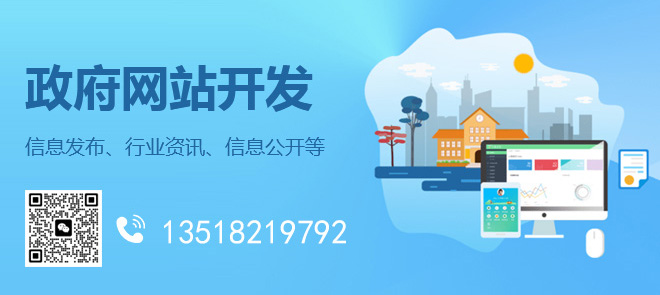扫二维码与项目经理沟通
我们在微信上24小时期待你的声音
解答本文疑问/技术咨询/运营咨询/技术建议/互联网交流
当我们在Launcher中点击浏览器的图标时,浏览器的窗口会打开并显示主页(HomePage)。这里我们对这一场景进行分析,研究浏览器如何启动,取得缺省主页并将它布局和显示的。

成都创新互联公司主营西华网站建设的网络公司,主营网站建设方案,成都app软件开发,西华h5微信小程序开发搭建,西华网站营销推广欢迎西华等地区企业咨询
根据前边对WebView 类的学习,大概可以预期我们在主Activity的onCreate方法里从设置里面取得缺省主页的配置,创建一个WebView类,并使用setContentView将它添加到主窗口中。下面我们从浏览器的代码看看它是如何实现的。
首先,研究AndroidManifest文件,从
另外,该Apk的主Activity为BrowserActivity:
。。。
Apk的启动,首先是ApplicationBrowser类的onCreate方法,主要工作:
// create CookieSyncManager with current Context
CookieSyncManager.createInstance(this);
BrowserSettings.initialize(getApplicationContext());
Preloader.initialize(getApplicationContext());
这里涉及到三个工作:Cookie同步管理,浏览器设置和预加载。
然后是Activity的onCreate方法,与我们的研究相关的代码:
@Override
public void onCreate(Bundle icicle) {
if (LOGV_ENABLED) {
Log.v(LOGTAG, this + " onStart, has state: "
+ (icicle == null ? "false" : "true"));
}
super.onCreate(icicle);
mController = createController();
Intent intent = (icicle == null) ? getIntent() : null;
mController.start(intent);
}createController方法:private Controller createController() {
Controller controller = new Controller(this);
boolean xlarge = isTablet(this);
UI ui = null;
if (xlarge) {
ui = new XLargeUi(this, controller);
} else {
ui = new PhoneUi(this, controller);
}
controller.setUi(ui);
return controller;
}主要的工作是Controller的创建,PhoneUi的创建和Controller的start。
Controller的构造方法主要涉及到以下几个相关类:
BrowserSettings
TabControl
CrashRecoveryHandler
UrlHandler
BrowserWebViewFactory
IntentHandler
PageDialogHandler
BookMarks的ContentObserver
NetworkStateHandler
SystemAllowGeolocationOrigins
IconDataBase
PhoneUi的构造:
BaseUi的构造:
FrameLayout frameLayout = (FrameLayout) mActivity.getWindow()
.getDecorView().findViewById(android.R.id.content);
LayoutInflater.from(mActivity)
.inflate(R.layout.custom_screen, frameLayout);
mFixedTitlebarContainer = (FrameLayout) frameLayout.findViewById(
R.id.fixed_titlebar_container);
mContentView = (FrameLayout) frameLayout.findViewById(
R.id.main_content);
mCustomViewContainer = (FrameLayout) frameLayout.findViewById(
R.id.fullscreen_custom_content);
mErrorConsoleContainer = (LinearLayout) frameLayout
.findViewById(R.id.error_console);Custom_screen的layout文件:
可以看出这个是浏览器主界面的布局,浏览器的布局已经准备好,后面我们创建的WebView应该是添加到main_content里面。
Controller的start方法执行了CrashRecoveryHandler的startRecovery().
CrashRecoveryHandler相关操作:
首先是initialize(),创建了CrashRecoveryHandler实例,CrashRecoveryHandler实例构造了foregroundHandler和backgroundHandler。
CrashRecoveryHandler的preloadCrashState方法,在backgroundHandler的处理中执行loadCrashState(),该方法将CrashState从STATE_FILE读入到mRecoveryState中。
CrashRecoveryHandler的startRecovery方法,调用Controller的doStart()。
Controller的doStart方法调用onPreloginFinished().
currentTabId is -1, thenopenTabToHomePage().
openTabToHomePage
createNewTabthen loadUrl.
createNewTab的实现:
TabControl::createNewTab
createNewWebView:
new BrowserWebView;该类主要用来管理WebView滚动条事件。
initWebViewSettings;
setActiveTab
TabControl::setCurrentTab
PhoneUi::setActiveTab
attachTabToContentView
至此,我们看完Apk启动并加载HomePage的过程,简单总结如下:
1.浏览器实现了自己的Application类(Browser),在其onCreate方法中进行了一些初始化工作(Cookie同步管理,浏览器设置和预加载);
2.浏览器的主Activity是BrowserActivity,在其onCreate方法中构建了Controller和PhoneUi,并调用Controller::start方法启动Controller;
a)Controller在其构造方法中实例化和初始化一些协助对象,其中一个重要的类是CrashRecoveryHandler;
b)PhoneUi的构造方法加载custom_screen布局文件,并将它作为Activity窗口的ContentView.
c)Controller::start方法执行了CrashRecoveryHandler的startRecovery(),该方法又调用Controller的doStart()方法
i.Controller的doStart方法调用onPreloginFinished(),该方法执行openTabToHomePage,打开浏览器主页。具体将WebView加到ContentView的方法是BaseUi的attachTabToContentView方法。

我们在微信上24小时期待你的声音
解答本文疑问/技术咨询/运营咨询/技术建议/互联网交流